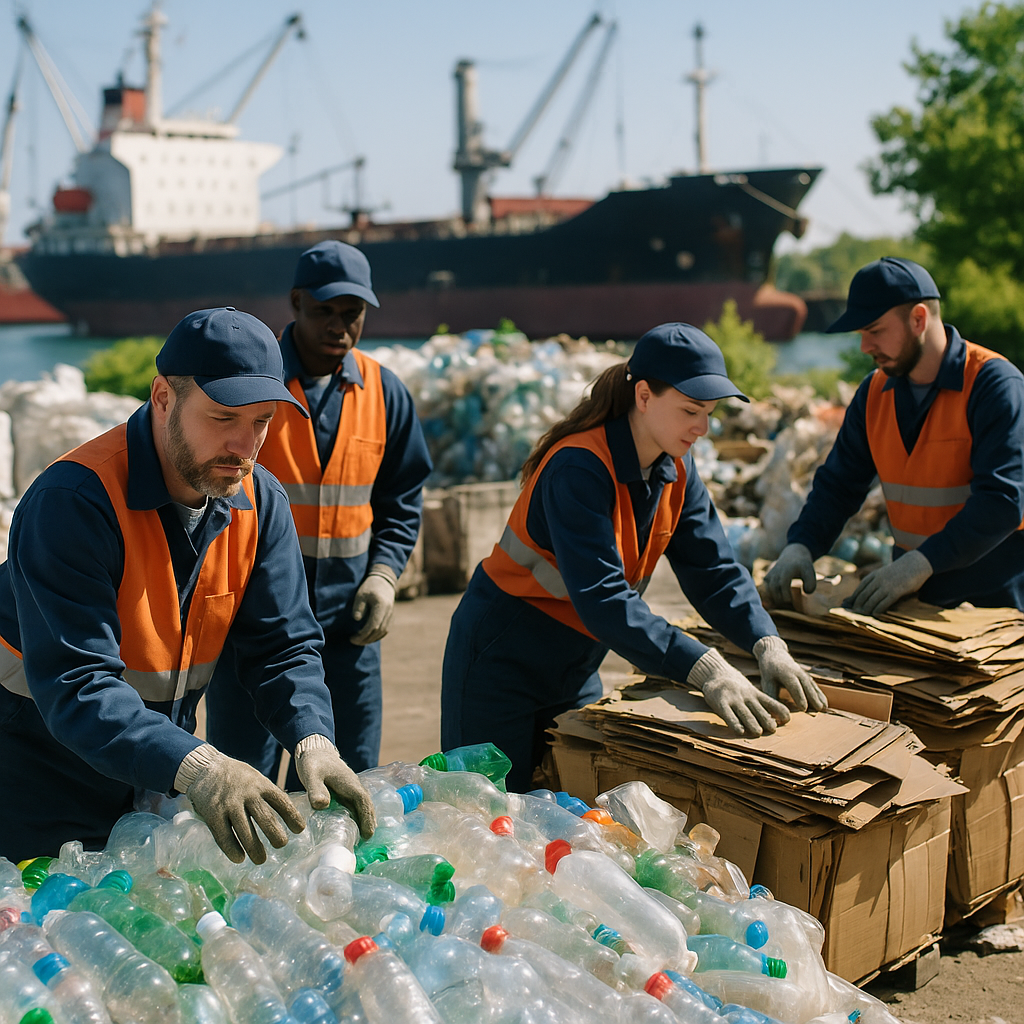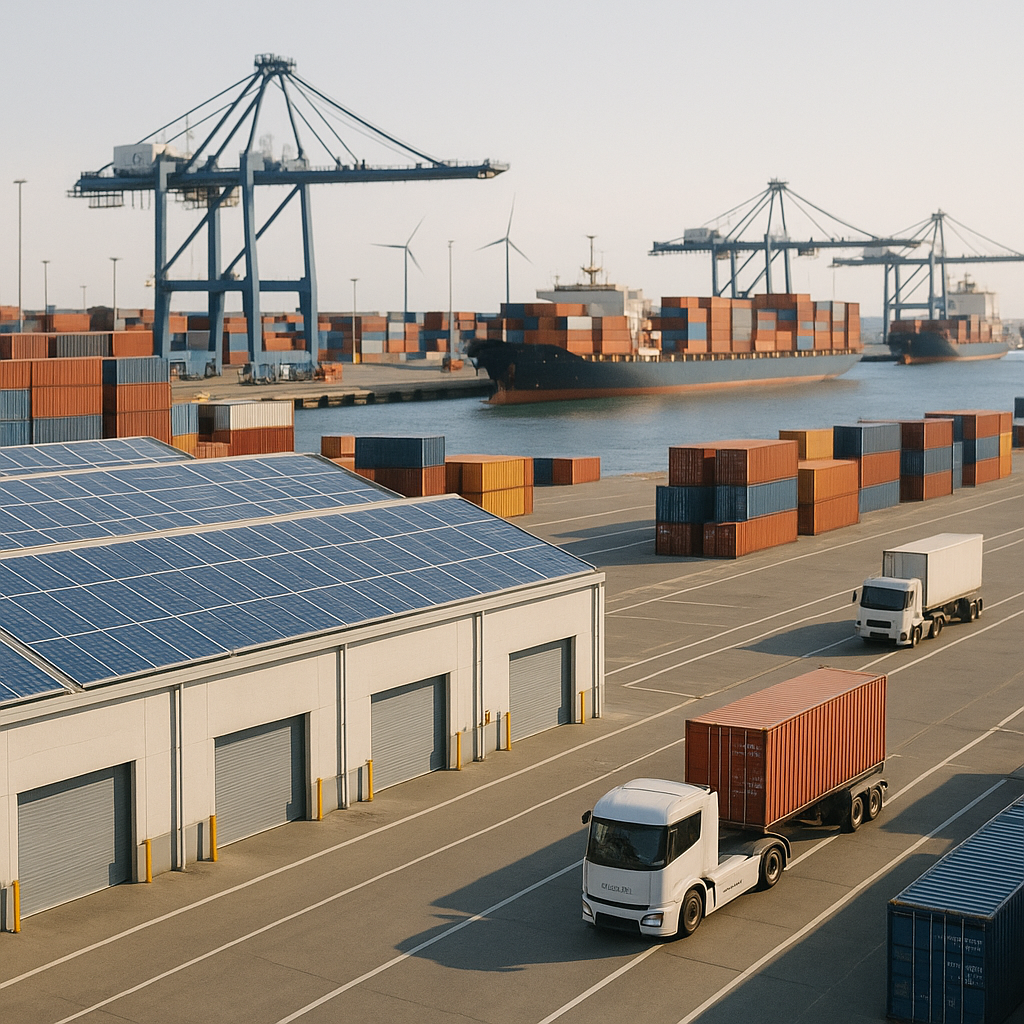5901 Botham Jean Blvd, Dallas, TX 75215
What is the Corpus Christi Port’s Approach to Maritime Recycling?
August 8, 2025Along Texas’s Gulf Coast, maritime pollution poses a serious threat to coastal ecosystems. The Port of Corpus Christi is addressing this challenge through innovative recycling initiatives and environmental protection measures.
Recently, the port secured a $471,324 grant from the Environmental Protection Agency’s Trash-Free Waters program. This funding supports their comprehensive approach to waterway protection and marine debris management. The EPA recognized the port’s commitment to environmental stewardship with this investment.
Central to the port’s maritime recycling strategy is a solar-powered trash skimming system. This autonomous device operates continuously, collecting up to 1,000 pounds of waterborne waste in a single gathering. The skimmer strategically targets the Salt Flats Ditch, a natural point for urban runoff before it enters the Corpus Christi Ship Channel and ultimately the Gulf of Mexico. This placement helps protect nearly eight miles of valuable shoreline from contamination and debris.
How Does the Port’s Recycling Program Benefit the Local Environment?

The Port of Corpus Christi’s recycling initiatives deliver substantial environmental benefits to the Coastal Bend region. The program primarily focuses on capturing waterborne trash that would otherwise pollute the bay waters and harm marine life. This effort removes existing debris and prevents further contamination of nearly eight miles of shoreline along the Salt Flats Ditch area near Nueces Bay.
The core of the port’s environmental commitment is its EPA-funded autonomous, solar-powered marine debris collector. This innovative device can gather up to 1,000 pounds of refuse in a single collection. Its value goes beyond cleanup; port researchers carefully analyze the collected waste to identify specific materials and track migration patterns, providing crucial data on pollutant movement through the waterway system.
This scientific approach turns basic cleanup into valuable research. The Port shares its findings with academic institutions and coastal conservation organizations, creating a collaborative network that strengthens regional environmental protection efforts. This knowledge exchange helps other groups develop more effective pollution prevention strategies throughout the Gulf of Mexico ecosystem.
The recycling program also includes the impressive “Sink Your Shucks” initiative, which has reclaimed over 3 million pounds of oyster shells from local restaurants. Rather than ending up in landfills, these shells are quarantined at the Port of Corpus Christi before being returned to bay waters. This has restored more than 45 acres of oyster reef habitat across the Mission-Aransas Estuary, including Copano, Aransas, and St. Charles Bays.
These restored oyster reefs provide critical ecological services. They create habitat for fish, crabs, and other marine life, filter bay waters to improve clarity and quality, and protect shorelines from erosion. The economic benefits are significant, with restored oyster reefs providing an estimated economic value between $2,200-$40,000 per acre through enhanced water quality, shoreline protection, and recreational fishing opportunities.
Sean Strawbridge, Chief Executive Officer for the Port of Corpus Christi, highlighted the importance of these efforts: “Our coastal bays and estuaries are national treasures and must be safeguarded. This EPA grant will certainly help protect the health of our local ecosystem, which makes the South Texas Coastal Bend naturally picturesque.”
What Other Sustainability Efforts is the Port Undertaking?

Beyond maritime recycling, the Port of Corpus Christi implements a comprehensive approach to environmental stewardship. As the nation’s third-largest port by total tonnage, it balances its role as a major energy export hub with strong environmental commitments across multiple areas.
The Port of Corpus Christi is a global leader in renewable energy adoption. Since completing its third consecutive year operating on 100% renewable energy, it holds the distinction of being the first Port Authority in the world to achieve this milestone. This accomplishment earned recognition from the U.S. Environmental Protection Agency’s Green Power Partnership for the port’s leadership in green energy use.
Environmental initiatives at the port extend well beyond energy usage:
- Waterway Protection: The port secured an EPA grant for waterborne trash collection in the Salt Flats Ditch near Nueces Bay, protecting nearly eight miles of shoreline from contamination. This initiative includes deploying an autonomous, solar-powered marine debris collector capable of gathering up to 1,000 pounds of refuse in a single collection.
- Community Engagement: Regular community cleanups engage local residents in environmental protection efforts. These activities help raise awareness about pollution impacts on coastal ecosystems.
- Strategic Environmental Management: The port maintains an ISO 14001 certified Environmental Management System (EMS) that systematically addresses environmental issues throughout its operations.
- Environmental Policy Framework: Port operations are guided by six key environmental precepts: air quality, climate action, water quality, resilience and climate adaptation, habitat creation, and soil and sediment management.
- Green Marine Certification: The port maintains high performance ratings in the Green Marine environmental certification program, demonstrating excellence in areas like greenhouse gas reduction, community impact management, and waste handling.
The Port of Corpus Christi has established ambitious environmental targets, including reducing emissions (PM, VOCs, NOx, SOx) by 15% every three years, cutting greenhouse gas emissions per cargo ton by 7.5% annually, and creating or restoring 50 acres of habitat every three years. These measurable goals demonstrate the port’s commitment to continuous environmental improvement while maintaining its economic importance.
Through these diverse initiatives, the Port of Corpus Christi demonstrates how industrial operations and environmental responsibility can successfully coexist, serving as a model for sustainable port management in the maritime industry.
[[artifact_table]] Port of Corpus Christi Green Marine Environmental Performance Ratings [[/artifact_table]]Conclusion: The Future of Maritime Recycling at Corpus Christi Port

The Port of Corpus Christi exemplifies how industrial strength and environmental stewardship can coexist. Through its comprehensive maritime recycling initiatives and environmental programs, the port has become a leader in sustainable port operations across the United States. Since 2006, it has recycled over 1.2 million pounds of materials, showcasing a commitment to environmental responsibility that complements its economic success.
As the nation’s largest crude oil export gateway, the Port of Corpus Christi balances its economic impact with proactive sustainability measures. The port’s investment in trash skimming technology, commitment to 100% renewable electricity since 2017, and advancement to Level 5 in all applicable Green Marine program areas demonstrate how major ports can prioritize coastal habitat protection while remaining economic powerhouses. These initiatives serve as a model for other ports worldwide aiming to integrate commerce and conservation.
Businesses and municipalities looking to recycle metal and enhance their sustainability initiatives can contact Okon Recycling at 214-717-4083.
